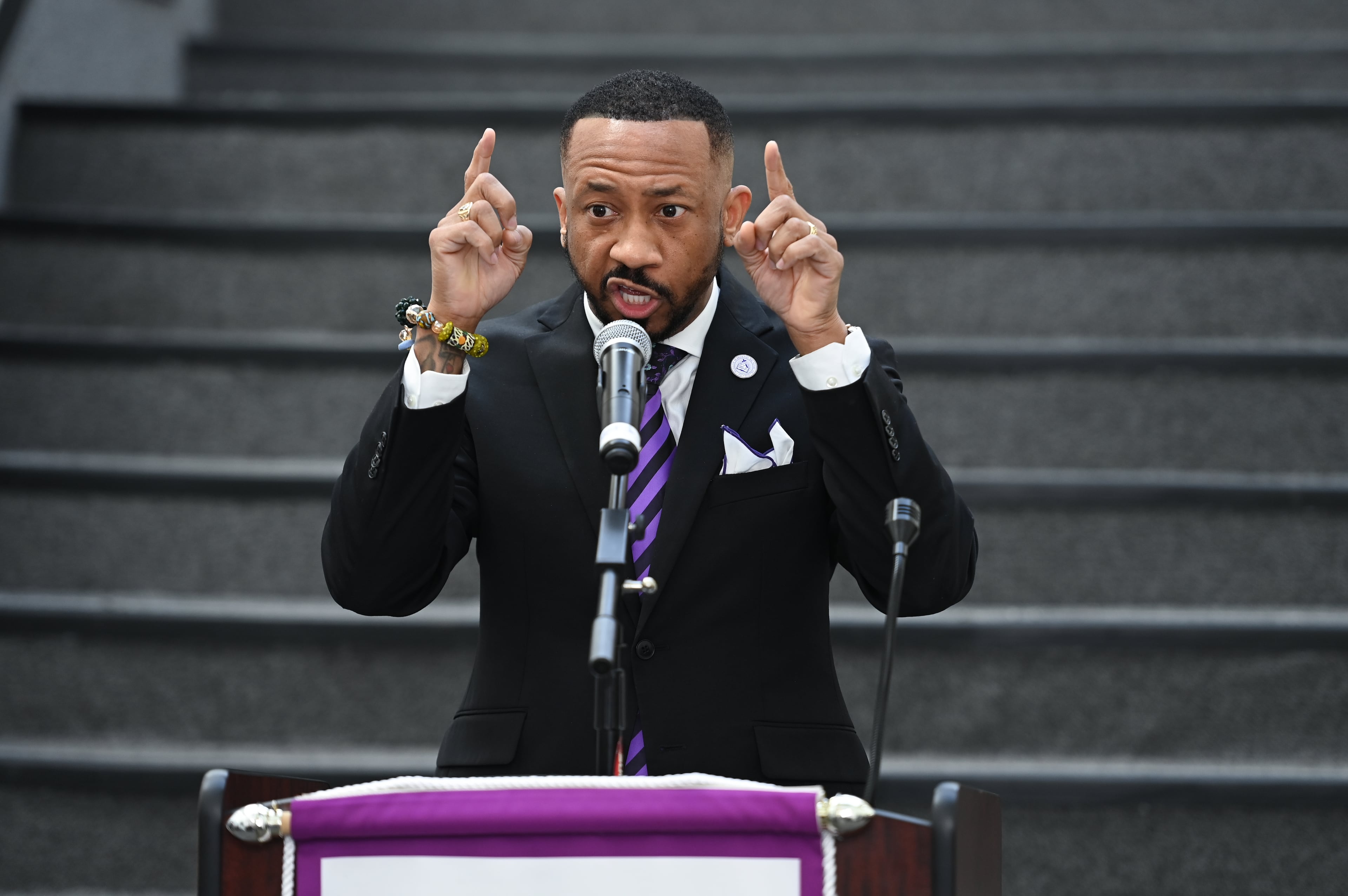Blackout or blackface? Why face paint at Ga. school struck a nerve

The photo shows five people: They’re wearing black clothes and white curly afro wigs. Their bodies are painted largely black. Four of their faces are painted black too. They’re all smiling.
The group in the photo walked into a high school volleyball game in Fayetteville last week. The game was billed as a “blackout” for the home team, the Whitewater High Wildcats, and fans were encouraged to wear black clothing. Administrators quickly addressed the group at the game, but it was already too late.
The photo circulated online in the days afterward. To anyone who came across it, it seemed to depict young people in blackface — a practice that dates to the 1800s, when performers would paint their faces to create bigoted caricatures of Black people. (The Atlanta Journal-Constitution is not publishing the photo because of the sensitive content.)
At a time when diversity, equity and inclusion efforts are being stripped from public schools, the photo attracted attention — and outrage — beyond Fayette County.
“We don’t know what their intent was, and the school is not saying what their intent was, and even if they meant it harmless ... We need to nip this in the bud right now,” Kevin Pratt, president of the Fayette County NAACP branch, told the AJC.
Fayette County School Superintendent Jonathan Patterson publicly apologized for the situation at a school board meeting on Monday.
“We want to state clearly: It is never acceptable to paint one’s face black. This action is deeply offensive, and it does not reflect the values of our schools or our community,” Patterson said. “Moving forward, we are committed to ensuring this does not happen again.”
After Patterson’s apology, Fayette County NAACP Vice President Quentin Pullen spoke up at the meeting: “I heard what you said and I appreciate your sentiment. But what are we going to do?”
Patterson had been repeatedly in contact with the NAACP in the week since the game, Pratt said, including a meeting Wednesday. The district plans to train staff to ensure an appropriate response in the future. The civil rights organization suggested they take it a step further, by giving cultural competency training to all students and staff at the school where the volleyball game was held.
One of President Donald Trump’s first actions in office was to threaten to pull federal funds from schools that practice “discriminatory equity ideology.” Schools have generally interpreted that order to mean any program that promotes diversity or inclusion must be cut, including efforts to close achievement gaps or hire more diverse staff. Pratt said the training he’s talking about wouldn’t focus on race — it would teach how to understand and respect all differences, across gender, ethnicity, religion and culture.
The student population at Whitewater High School, where the photo was taken, almost exactly mimics Fayette County’s demographics: 54% of students are white and 25% are Black, according to state and federal data. But the people in the photo weren’t students at the school, Patterson said. The group included a student who did not go to Whitewater High and several adults that the district has not identified. Each person in the photo was white, Pratt said.
Blackface isn’t an issue unique to Fayette County: An Atlanta charter school apologized and suspended a teacher in 2018 after a Black history program featured second grade students holding masks depicting traditional blackface. Megyn Kelly lost her NBC show after questioning why blackface is racist in 2018. And in 2019, Ralph Northam, then-governor of Virginia, and Justin Trudeau, then-prime minister of Canada, both had to apologize when photos surfaced of them each wearing blackface. Around that time in 2019, Emory University expressed regret about what it described as “offensive and racist images” in old student yearbooks.
The National Museum of African American History and Culture explains that blackface is still a harmful practice in media and on campuses today, no matter the intent. “In each instance, those facing scrutiny for blackface performances insist no malice or racial hatred was intended.”
That’s what Pratt and Pullen are hoping to teach in Fayette County.
“For anyone in our county, which is a diverse county, to allow themselves to show up like that, it means that our board of education is failing our kids,” Pullen said.
The district also plans to review its student code of conduct. Currently, it broadly prohibits discrimination and harassment and prohibits hateful imagery on clothing. Pratt suggested a clear ban on “racism, hate-based actions and culturally insensitive behaviors.”
A spokesperson for the school system said they did not have any additional comment as of Wednesday afternoon, but Pratt said he was encouraged by the steps the district has already taken.
The district and the NAACP plan to meet again within the next 45 days to discuss progress.



